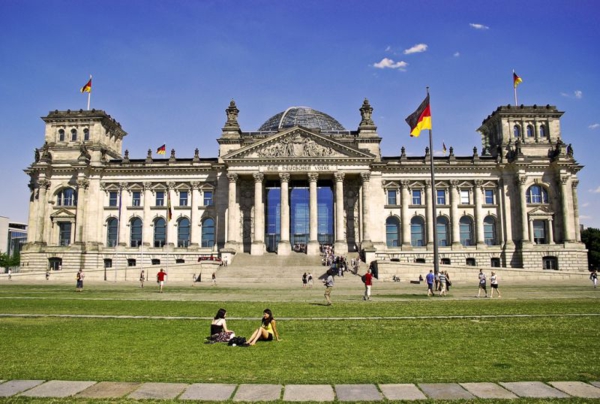Since as far back as we can remember, German industries have been considered as their strongest asset. Their emphasis on quality has bordered on obsession, creating a situation where everything coming out of their factory doors has excellence stamped all over it. German products, without doubt, are one of the most coveted in the world, whether you are talking about their cars, their appliances or even their shoes. So much so that Germany is one of the largest exporters of goods around the world, with a massive trade surplus exceeding over $185 billion approximately!
Germans have been one of the leading countries in the drive towards perfecting industrial production, of any scale, since the dawn of industrialization. However, this hasn’t always been the case.

Early History
When the industrial revolution came about, Germany had some catching up to do. With Britain, France and, even, Belgium leading the way, Germans were trying to improve their social structure that was, originally, quite poorly structured and completely opposing to the concepts of entrepreneurship and economic development. This was largely a result of Napoleon Bonaparte’s conquests between the 1790s and the 1850s.
After the end of the Napoleon era, Germany introduced several institutional reforms that included the removal of restrictions on sale of large areas of land. Entrepreneurship was, earlier, considered a lowly form of life – that changed as opportunity was given to people to become their own masters, rather than some overlord’s servants. Agriculture was quickly identified as the backbone of the population and focus shifted to farming.
What the Germans realised is that their focus on farming was producing more food than they needed. As a result, fewer people became farmers and more population moved to the industrial-production side of things. The introduction of a commercial law and reduction of the power of guilds led to greater freedom for people to work as they pleased. As railroad entered the arena in the 1840s, Germans realised the need for more engineers, architects and skills machine-workers to help improve coal & iron production and sustain railroad development.
Post World War II
After the devastation that followed the Second World War, the Marshall Plan came to the assistance of the West Germans. However, it wasn’t the only thing that Germany needed to get out of their misery. There was a massive investment of labour, hard work and a number of long hours that Germans, in a bid to improve the situation, put in.
As the Americans allowed their own kind of economic ideas to come forth, people like Ludwig Erhard put their reforms in place and helped restore currency values and restore order to the economic chaos that followed the war. Within 2 years, Germany put in the kind of effort needed to overtake England in terms of production levels. This came mainly due to the trends of how services were required in that time, rather than industry.
Germany used the financial boost of the Marshall Plan to modernise their processes and technologies. While other countries resisted these changes, Germany decided to make them an integral part of their industrial ecosystem. The use of machinery and technology rapidly reduces the need for manpower and that, when combined with the pro-growth policy of the government and a brilliant education sector ensured that a continuous supply of trained and efficient workers moved into the German workforce.
Setting the Standard
Whether it is mere work-ethics or the quality of the equipment & tools, neither is enough to make the entire process complete on its own. Germany has found the perfect combination of these elements to produce, time and again, world class products and services using the best people and the best techniques. Their level of commitment to producing quality items shows through the products that come out in the market.
From the Mercedes S-Class car to the thousands of varieties of sausages, the millions of litres of world class beer and even the kitchen décor and appliances that come out of Germany – everything is at the cutting edge of technology. The S-Class, in itself, is a wonderful example of their skill – every single feature on this particular model of car is 10-years ahead of all other road-cars. What you see on the S-Class today will be seen in other road cars at least 10-years down the line.
That, if anything, is the essence of what has converted Germany from being a war-torn nation to being one of the biggest economic and industrial super-powers on the planet.
Jamie Marshall – author
Jamie has spent his life working in the kitchen-appliance industry, especially moving from England to Germany to find out why is Germany famous for quality. Applying the knowledge he’s earned from working with companies like German kithchen specialists Illya Kitchens, Jamie has taken his family business to the next level. His family-run business is one of the few remaining kitchen-equipment manufacturing family-run companies that manufacturers the quality of products that it does.
Why Is Germany Famous For Quality?

